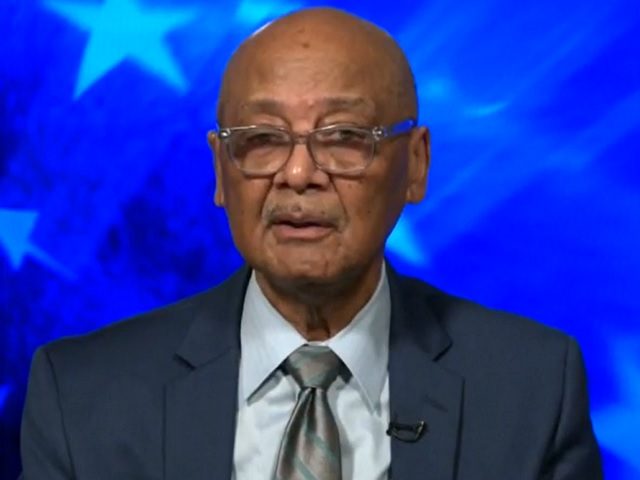Conservative black leaders are pushing back against the revisionist history of the New York Time’s “1619 project” with the “1776 Unites” curriculum for high school students that tells a more “complete” history of the country’s past, from the “legacy of slavery” to the “legacy of excellence” in the black community.
Bob Woodson, civil rights activist and founder and president of the Woodson Center, and Ian Rowe, a resident fellow for domestic policy studies at the American Enterprise Institute, spoke to reporters about the project in a zoom call on Wednesday, and on Thursday Betsy DeVos, Secretary of the Department of Education, expressed support for the effort.
“All of what we’ve done over these 40 years are being threatened now with the 1619 project from the New York Times that I think has released a very corrosive and very dangerous challenge to traditional values,” Woodson said on the call.
“In essence what they are saying is because slaves arrived to America’s shore in 1619 “America should be defined as a racist society, all whites are guilty and culpable of having privilege and, therefore, should be punished, and all blacks are victims and should be compensated,” Woodson said.
Instead, the “1776 Unites” curriculum will “provide a more complete and inspiring story of the history of African Americans in the United States,” Rowe said on the call.
Rowe comes to the project following ten years as the CEO of a network of charter schools in the Bronx and the Lower East Side of Manhattan attended by mostly low-come black and Latino students.
Rowe said parents chose the schools he was in charge of because they knew what a good education can provide for their children. He added:
They did not believe that there children are doomed to be shackled by the horrors of America’s legacy of slavery. They knew that if teachers had the highest of expectations and were empowered with a curriculum that could help their children develop character-based strengths, like integrity, resiliency, and agency.
“The belief that you could be the master of your own destiny,” Rowe said. “And those children could lead their lives on their own terms, even in the face of structural barriers.”
The announcement of the “1776 Unites” curriculum said, in part:
The 1776 Unites curriculum offers authentic, inspiring stories from American history that show what is best in our national character and what our freedom makes possible even in the most difficult circumstances. 1776 Unites maintains a special focus on stories that celebrate black excellence, reject victimhood culture, and showcase African-Americans who have prospered by embracing America’s founding ideals.
Created by a team of independent scholars, counselors, and role models, the 1776 Unites curriculum equips students to seize the opportunities afforded them today. These lessons are grounded in the Woodson Center Principles and help educators bring their K-12 students encouragement, enrichment, and the genuine empowerment that comes with personal agency.
The curriculum offers life lessons from largely unknown, heroic African-American figures from the past and present who triumphed over adverse conditions. Looking forward, the curriculum also includes lessons that help the next generation develop the types of character-based strengths like resiliency, optimism, tough-mindedness, and courage that are most associated with human flourishing.
On the call, Rowe shared an example of those unsung heroes, including Elijah McCoy who held some 57 patents over the course of his lifetime and his name became synonymous with excellence and the slogan to describe that status — “the real McCoy.”
And just one day after the conference call, DeVos expressed support for the curriculum.
Politico reported that DeVos said during a conservative policy panel on Thursday that she thinks a “1776 Unites” curriculum “sounds really wonderful.”
“DeVos said the federal government should not dictate what to teach, however,” Politico reported. “Federal law also bars the Education Department from mandating curriculum.” She said:
The federal government, the Department of Education, does not have a role in a national curriculum. Curriculum is best left to the states and local districts at local education agencies, but we can talk about curriculum that actually honors and respects our history and embraces all of the parts of our history and continues to build on that. Because we know that if we do not know and understand history, we are bound to repeat it.
“No nation or individual should be defined by its birth defects or what it used to be in the past,” Woodson said on the call with reporters. “America should be defined by its promise.”
The curriculum is available for free on the “1776 Unites” website. Woodson and Rowe said the K-8th grade curriculum are forthcoming.
Follow Penny Starr on Twitter

COMMENTS
Please let us know if you're having issues with commenting.